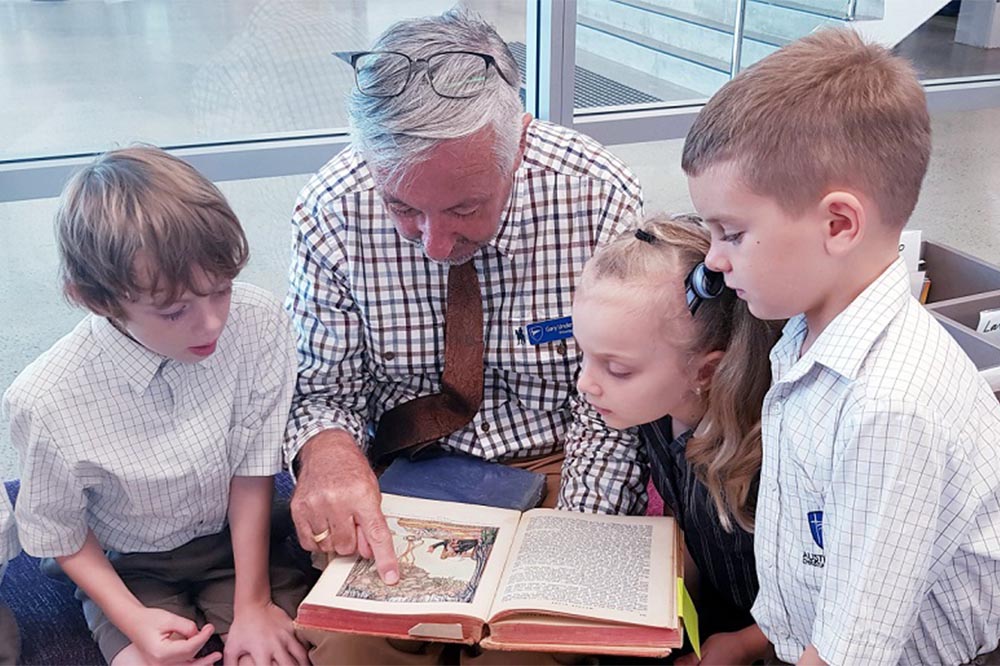
The last decade as an educator has seen tremendous growth and impactful change for principal Gary Underwood of Australian Christian College (ACC) Moreton.
What began as 110 students in 2013 has exploded to 700 students on campus and 1,000 students online now thanks to the practices instilled by Underwood in his tenure at the school.
On Wednesday, Underwood announced his retirement after eight years at ACC, having worked to grow the student body and instil ethical and forward-thinking practices in his teaching staff.
Below, The Educator speaks to Underwood, who reflects on the last decade as an educator and shares his predictions for the next decade ahead.
TE: How has the nature of schooling changed, and what has this looked like for ACC?
Back in the day when I started you were given your two page curriculum doc and you taught what fitted into that. At the end of the year you held an exam for the students. So you use the curriculum and get good results.
Slowly this has changed, now the curriculum is very detailed but you can’t fit everything in. There is now much more accountability throughout the year rather than just at the final exam (NAPLAN, testing throughout the year, etc.) which places immense pressure on teachers to make sure the students are improving. This is hard because at the same time there is an increase in the percentage of students with diagnosed disabilities that are in classes with the mainstream students which creates far more work for our teachers.
Technology has changed absolutely everything - back in the day we had all of the things on a little overhead projector and printed out the handouts to take to class. Today schools have learning management systems, all materials, linked to content, if teachers want to access a video it’s linked directly - no more filing cabinets in the garage at home.
TE: I understand that certain teaching practices at the College have led to significant growth in enrolment figures. Can you tell us more about this?
When I arrived at the school in 2013, we had 100 students and now have almost 700 students on campus and 1000 students online.
We worked slowly and diligently to build educational foundations and employ high quality like-minded teaching staff to inspire our next generation of student leaders.
When I came to ACC, students were 4 or more years behind the national literacy and numeracy levels. I prioritised both areas on the School’s academic agenda throughout the past 7 years; now NAPLAN is where they should be at or better.
The improvement is made possible by ACC’s unique educational approach, which includes partnering with parents, setting academic goals, closely monitoring academic progress, rewarding personal bests and fostering a growth mindset. Our teachers coach, support and encourage all students to achieve their individual goals.
ACC students are continually challenged and unconditionally loved. Our students have teachers who notice them, ask about their interests, listen to them, laugh with them and believe in them. ACC students are well known, well-loved and well taught by teachers who want the very best for them.
TE: What are your predictions for the next decade in the education sector?
More technology will be used in the classroom and the teacher will use the technology to assist in catering to students of differing ability.
Personally, I think we’ll move past that to understand school is so much more than the academic results - we teach them social skills, to be confident, which can be lost behind the desire to have increased learning outcomes.
I think we need to start to trust our qualified teachers. The level to which our teachers are trained is through the roof! They receive heaps of professional development - I want everyone to understand teachers are able enough to do their job if we let them do it.
Who knows what will happen in the next 20 years but if we only teach students to write neatly and spell correctly when they have computers etc. we’re not preparing them for the future. Of course they still need to be literate (math, science) but also have to live and understand history, how the world works, social skills that we don’t have time to fit into the curriculum. If we want a better world we need to teach students how to interact with each other and these relational skills will be so important in the future.
TE: What approach do you believe needs to be taken to reverse the decline in principal health and wellbeing on a national scale?
This is a particularly difficult question for me to answer from my limited viewpoint, because I would imagine that the principals within each education sector (i.e. public, catholic and independent) would face different challenges.
I do believe that investing early into the development of future principals is part of the solution. Most principals learn on-the-job how to be a principal, as opposed to a teacher. For example, at Australian Christian College we have a Trainee Principals Program at the group level (there are 9 Australian Christian Colleges across the country). These future leaders are given a taste of principalship over a number of years without taking on the actual responsibility of principalship. They are also mentored by an experienced principal and attend formal leadership development programs. Forewarned is forearmed when it comes to becoming a school principal.


